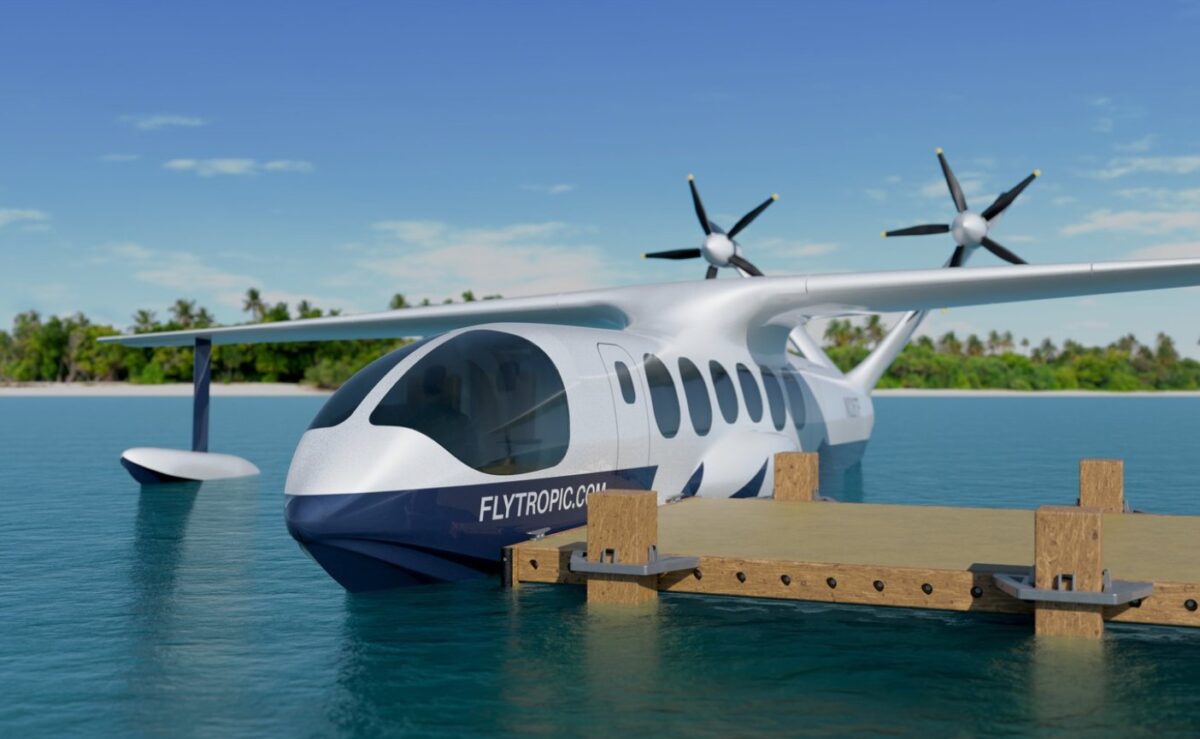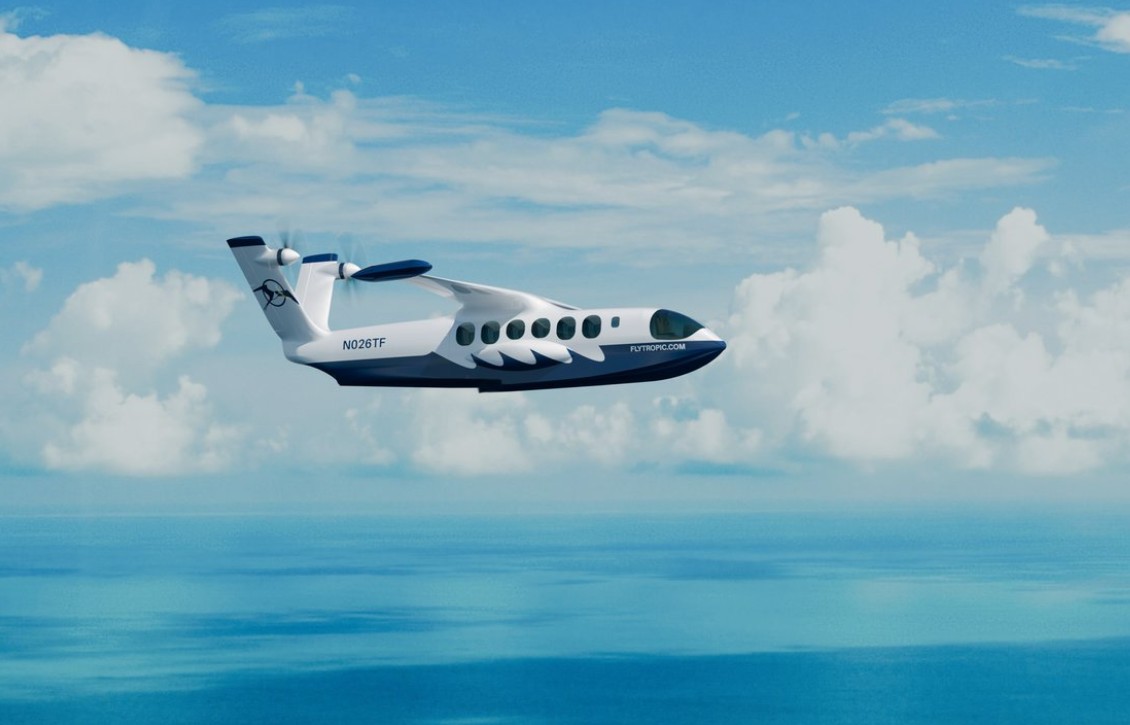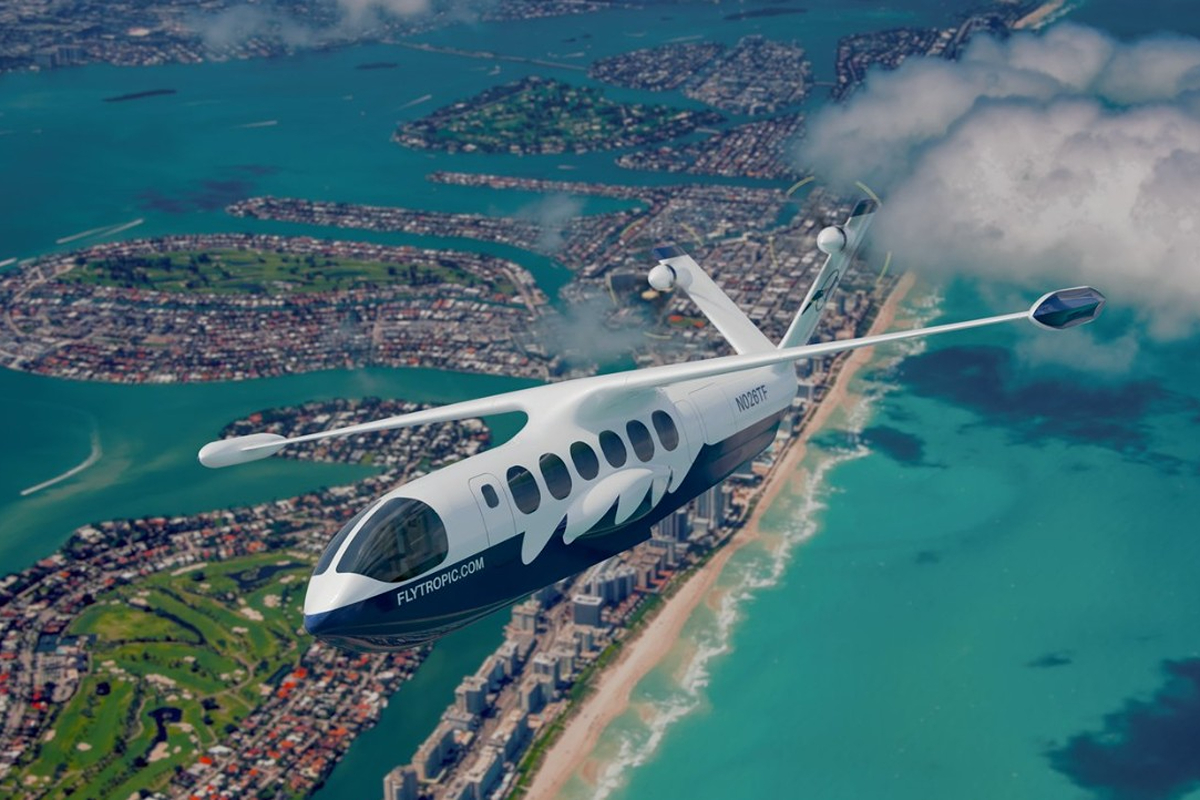Tidal Flight, a Virginia-based aerospace company in the process of designing a hybrid-electric seaplane it has named ‘Polaris’, has announced that it has signed a Letter of Intent (LOI) with Florida-based Tropic Ocean Airways. The agreement, announced on February 11, 2025, during the Future Opportunities for Seaplanes and Amphibious Aviation 2025 (FOSAA25) conference in Miami, Florida, would see Tropic Ocean Airways introduce up to 20 Polaris seaplanes to its fleet with a potential total value of over $100 million.
Tropic Ocean Airways is a major seaplane airline based in Fort Lauderdale, Florida, and was founded in 2009 by a former US Navy fighter pilot, Rob Ceravolo. The carrier operates private charter services, scheduled flights, and yacht transfers throughout Florida, the Bahamas, and the Northeast US. The airline has a current fleet of 14 aircraft – a mix of wheeled and amphibious (seaplanes) Cessna 208 Grand Caravans which it operates with an FAA-certified two-pilot crew.
Founded by entrepreneurs Jude Augustine, Pranav Krishnamurthy, and Mark Lau, Tidal Flight is developing its Polaris hybrid aircraft. According to the company, Polaris is a modern, clean-sheet, hybrid-electric seaplane that can carry 9 to 12 passengers with baggage and is capable of landing on both waterways and runways.


“Seaplanes present the opportunity to provide direct, low-infrastructure access to city centers, remote communities, and coastal destinations. Our aircraft brings a step-change reduction in operating costs and fuel burn to help bring that unique access to more people and more places with low to no emissions”, said Augustine, Co-Founder & CEO at Tidal Flight.
“We have been an industry leader in seaplane aviation, with one of North America’s biggest seaplane fleets, a rigorous safety standard instilled by my background as a US Navy pilot, and efforts to help grow seaplane aviation worldwide,” said Ceravolo, Founder and CEO of Tropical Ocean Airways. “Looking ahead to 2030, we want to be a leader in sustainable aircraft and in the adoption of next-generation technology, and this agreement with Tidal helps us do that”.
Tidal is aiming for Polaris to be as sustainable as possible for an aircraft of its size. The company claims Polaris will offer an 85% reduction in fuel burn on typical sector lengths compared to conventional aircraft, reducing corrosion-related maintenance, and bringing an approximate 20 decibel reduction in take-off noise, all while delivering high payload-range performance without expensive charge infrastructure at outstations.


With the capability to burn Sustainable Aviation Fuels (SAF) in the near term and the capability to outfit the Polaris airframe with a fully battery-electric or hydrogen-electric powertrain in the long term, Tidal claims that Polaris “offers a clear pathway to zero-emissions operation as technology and infrastructure improve.”
“Tidal’s quiet, comfortable, hybrid-electric aircraft helps us deliver on our sustainability goals while offering a superior product to our customers without compromising on range, payload, or cruise speed,” said Ceravolo about Tidal’s approach. “Polaris brings a legitimate improvement to our revenue generation capability and reduction in operating costs, rather than compromising on the business case to accommodate electrification.”
“Tidal’s rapid execution of critical technical milestones like flying their 1/6-scale prototype and completing a towing tank test campaign gives us confidence that this team will deliver on their goals”, added Ceravolo.
To date, Tidal has received a total of eight LOIs from seaplane and commuter operators worldwide for its Polaris model, representing a potential order book value of around $650 million.

